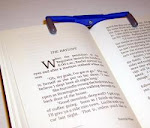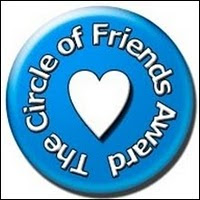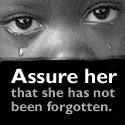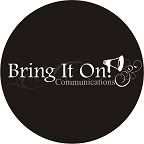I have had an admiration for the Amish community for most of my life. A close kin to the Amish are those in the Mennonite community. Rhoda Janzen grew up in a Mennonite home, and she has written a memoir of her life - then and now – entitled ‘Mennonite in a Black Dress: A Memoir of Going Home .’
.’
Here is the synopsis of this poignant memoir:
Not long after Rhoda Janzen turned forty, her world turned upside down. It was bad enough that her husband of fifteen years left her for Bob, a guy he met on Gay.com, but that same week a car accident left her seriously injured. Needing a place to rest and pick up the pieces of her life, Rhoda packed her bags, crossed the country, and returned to her quirky Mennonite family’s home, where she was welcomed back with open arms and offbeat advice (Rhoda’s good-natured mother suggested she get over her heartbreak by dating her first cousin – he owned a tractor, see).
Written with wry humor and huge personality – and tackling faith, love, family, and aging – Mennonite in a Little Black Dres s is an immensely moving memoir of healing, certain to touch anyone who has ever had to look homeward in order to move forward.
s is an immensely moving memoir of healing, certain to touch anyone who has ever had to look homeward in order to move forward.
Here is the biography of this author:
Rhoda Janzen holds a Ph.D. from the University of California, Los Angeles, where she was the University of California Poet Laureate in 1994 and 1997. She is the author of Babel’s Stair
Here is an interview with Rhoda discussing her book:
Rhoda has a humorous writing style. Here she is describing her father:
As adolescents, my sister Hannah and I were naturally anxious to see if we would turn out like our mother or our father. There was a lot at stake. Having endured a painfully uncool childhood, we realized that our genetic heritage positioned us on a precarious cusp. Dad was handsome but grouchy; Mom was plain but cheerful. Would we be able to pass muster in normal society, or would our Mennonite history forever doom us to outsider status?
My father, once the head of the North American Mennonite Conference for Canada and the United States, is the Mennonite equivalent of the pope, but in plaid shorts and black dress socks pulled up snugly along the calf. In the complex moral universe that is Mennonite adulthood, a Mennonite can be good-looking and still have no sartorial taste whatsoever. My father may actually be unaware that he is good-looking. He is a theologian who believes in a loving God, a servant heart, and a senior discount. Would God be pleased if we spent an unnecessary thirty-one cents at McDonald’s? I think not.
At six feet five and classically handsome, Dad has an imposing stature that codes charismatic elocution and a sobering, insightful air of authority. I’ve considered the possibility that his wisdom and general seriousness make him seem handsomer than he actually is, but whatever the reason, Dad is one of those people to whom everyone listens, No matter who you are, you do not snooze through this man’s sermon. Even if you are an atheist, you find yourself nodding and thinking, Preach it, mister!
Well, not nodding. Maybe you imagine you’re nodding. But in this scenario you are in a Mennonite church, which means you sit very still and worship Jesus with all your heart, mind, and soul, only as if a snake had bitten you, and you are now in the last stages of paralysis. (pp. 2-3)
And here is her explanation for how her husband looked at life in their home:
In general, Nick’s policy was, if you hadn’t used it in a year, throw it out. We lived in homes with spare, ultramodern décor. Once he convinced me to furnish a coach house with nothing but a midcentury dining table and three perfect floor cushions. You know the junk drawer next to the phone? Ours contained a single museum pen and a pad of artisan paper on a Herman Miller tray. (p. 5)
Rhoda’s professional skills are unusual, to say the least. She took on a side project to supplement her income:
Because of the house situation, I had agreed to ghost-edit a scholarly monograph on sacred dramatic literature of the late fifteenth century. I was working on the second chapter, which was about Feo Belcari’s mechanical innovations in the staging of sacre rappresenatzione. If you are one of the folks who have never heard of Feo Belcari, I can fix that right up for you. You know those Christmas Eve church plays in which your white-blonde niece gets to play the angel Gabriel year after year because she has a startling strange paleness that looks, and I mean this in a good way, a little like an albino? And remember the moment when she appears in a white sheet in the baptistery, maybe singing “It Came Upon a Midnight Clear” in a threadlike soprano? Feo Belcari was the guy in the late 1400s who figured out a way to have your niece/Gabriel come down on metal wires at the front of the church. That about sums it up, but the chapter I was editing was about fifty pages or so.
What I was doing was unusual – unusual, I mean, beyond the fact that there are maybe 16.2 people in the entire world who would like to know more about the sacred dramatic literature of the fifteenth century (Okay, I admit it: I’m one of them). Sometimes academics manage to wheedle their best friends into reading their manuscripts and making critical comments. It is not unreasonable that English professors are often targeted for this favor. If you also happen to be a grammarian who creepily knows how to diagram every sentence in the English language, there is an even more urgent demand for your services. I’m the sicko who can explain why a gerundive phrase must attach to a possessive adjective pronoun rather than an object pronoun. True, you wouldn’t want me at a party, but if the survival of the human race depended upon the successful parsing of the Constitution, you’d be knocking on my door, baby. (p. 17)
One advantage to growing up in an Amish home is to have the ability to cook up a storm:
I have been happily and busily cooking since age five, when I served up my first kettle of Borscht, made with boiled lettuce instead of cabbage (Say what you will, but it is easy to get confused in the face of such look-alike vegetables). The women in our family are the kinds of cooks whom you can’t kerfuffle. You need a dinner for ten an hour from now? No problem. We’ll rustle up homemade bread, noodles, gravy, sausage, whatever. Mennonite food has its delicious moments – more on that later – but our true gift lies in the ease with which we cook. Some cooks struggle with timing, with menu planning, with missing ingredients. Not us. Our seven side dishes always come up at exactly the same time, and if we have run out of something, which we rarely do, we have improvised a delicious substitution. We’re idiot savants when it comes to food preparation. You’ve heard of those developmentally delayed folks who can shout out what day of the week it was on May 16, 1804? That’s us, only we’re shouting, “Dinner’s ready!” (pp. 25-26)
As Rhoda grew up and experienced the world, she turned her back on her Mennonite upbringing. She found she had little in common with her brothers:
The gap between Aaron and me was marked by so much more than a divide between left and right brains, between science and the humanities. In fact, I don’t have much in common with either of my brothers. In college, they remained content with their opportunities in Mennonite circles. Aaron sang close harmonies in a madrigal group, his rich-timbered baritone blending like butter. Caleb played in state volleyball competitions with a Christian organization. They both went to Bible studies. They dated sincere gals who hairsprayed their bangs and went on missions trips. Big and easy in their exuberance, Aaron and Caleb coached, studied, prayed. But by then we had nothing in common.
I felt my little Mennonite college was holding me back from a serious literary education. And it was holding me back, in a manner of speaking. I found this out to my cost when in grad school I discovered the jaw-dropping level of my underexposure. At twenty all I wanted to do was read philosophy, feminism, and fashion. I was blind to all of the better lessons my solid little Mennonite college could have taught me, lessons about the value of community, of service, of wisdom rather than knowledge. (p. 135)
Rhoda discussed these differences with her mother, who had some wisdom of her own:
After they were gone, I asked my mother, “Don’t you think it’s weird that the boys are so much more conservative than you and Dad?”
“Oh, they’ll mellow over time,” said Mom. “When you’re young, faith is often a matter of rules. What you should do and shouldn’t do, that kind of thing. But as you get older, you realize that faith is really a matter of relationship – with God, with the people around you, with the members of your community.” (p. 137)
“Oh, they’ll mellow over time,” said Mom. “When you’re young, faith is often a matter of rules. What you should do and shouldn’t do, that kind of thing. But as you get older, you realize that faith is really a matter of relationship – with God, with the people around you, with the members of your community.” (p. 137)
Despite her turning away from her church of origin, Rhoda still has faith:
I hadn’t ruled out the existence of God. I still don’t. In fact, I’m gonna come right out and admit that I believe in God. I have always loved the beautiful, mysterious power of the Bible, its lethal history, its toxic charm. I adored the idea of learning Hebrew and Greek. I longed for sustained study with other students who were also humbled by the power of creation, by the ineluctable search for meaning in a broken world. (p. 168)
Rhoda has certain expectations for dating; she speculated about whether or not she would be able to enjoy the company of the grandson of an acquaintance of her mother’s – a Mennonite fellow seventeen years her junior:
In my opinion, sexiness comes down to three things: chemistry, sense of humor, and treatment of waitstaff at restaurants. If the sparks don’t fly from the beginning, they never will. If he doesn’t get your sense of humor from the very first conversation, you’ll always be secretly looking for someone who does. And if a guy can’t see restaurant servers as real people, with needs and dreams and crappy jobs, then I don’t want to be with him, even if he just won the Pulitzer Prize.
With my exceptionally generous criteria for defining sexiness, you’d think that there would be a good chance that Soren Friesen could make the cut. Let’s face it, my standards were pretty low. The unsexy characteristics that usually attend Mennonite men would theoretically not be barriers to me. By my own confessed standard, I would have no problem dating a man with beefy pink skin, or chins that skipped like rocks on a pond – one, two, three, kerplunk. I could even fall for a guy whose wallet contained an expired ten-dollar coupon for a bad chain steakhouse, at which the server would refuse to honor the coupon because it was a good six years out of date. (p. 203)
Despite her misgivings about dating a Mennonite man, she did agree to a coffee date with Soren:
So my expectations were very low as I drove to the coffeehouse to meet the twenty-seven-year-old grandson of the granny who handed out bombshell books like candy. Soren was sitting at a small table, reading the New York Times Book Review. I knew it was he the moment I saw him, even though there were one or two other thirtyish men about. Soren had the straight sandy hair of our people, and a ruddy goatee to match. He looked cheerful and attractive as he stood to greet me. He was tall. And I liked his glasses. (p. 204)
This book has a section in the back entitled, 'Etc...' which contains an interview, as well as Mennonite recipes (the platz and borscht sound especially good), and discussion questions. I loved the answer to this question posed to Rhoda in the interview portion:
Where are you on your spiritual journey today?
So often we think of faith as the crutch of crisis; we turn to it only when our world bottoms out, as mine did when my husband left me. Weirdly, faith is becoming more important to me, not less. I’m still exploring issues of spiritually and theology, and I’m even regularly attending a church. Also, nobody’s twisting my arm! I’m often amazed that an English professor prefers nonfiction to new fiction… With a nod to Viktor Frankl, the books on my nightstand are all about man’s search for meaning. (Etc. p. 7)
I am glad to see that Rhoda is attending church again. I pray that she is involved with a congregation and is under the leadership of a pastor who can stimulate her intellect while still nourishing her soul.
When I heard the title of this book, I knew I wanted to read it! Although it is outside of the normal bounds of books I have read of late, I enjoyed it thoroughly nonetheless. Dr. Janzen has an amazing ways with words, and I am encouraged to see that she is – slowly – returning to the faith of her childhood. I pray that Jesus manifests Himself to her in a mighty way.
You can order this book here .
.
This book was published by Henry Holt and Company and provided by them for review purposes.




























.jpg)







No comments:
Post a Comment